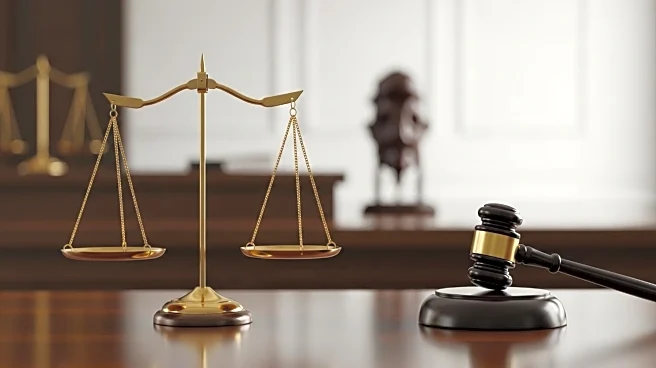What is the story about?
What's Happening?
U.S. District Judge Michael H. Simon has recused himself from a case challenging President Trump's deployment of National Guard troops to Portland. The recusal follows a request from Justice Department lawyers who cited potential partiality due to Simon's wife, U.S. Representative Suzanne Bonamici, publicly opposing the troop deployment. The case, which involves a lawsuit filed by the state of Oregon and the city of Portland, seeks to block the federalization of the Oregon National Guard. The Justice Department's request for recusal was based on Bonamici's active criticism of the deployment, which she described as unnecessary and based on false premises. The case has been reassigned to U.S. District Judge Karin J. Immergut, who was appointed by President Trump.
Why It's Important?
The recusal of Judge Simon underscores the complexities and potential conflicts of interest that can arise in high-profile legal cases involving political figures. The deployment of National Guard troops to Portland has been a contentious issue, with significant implications for federal-state relations and the use of military force in domestic affairs. The case highlights the ongoing tensions between the Trump administration and local governments over the handling of protests and civil unrest. The outcome of this legal challenge could set important precedents regarding the limits of federal authority and the rights of states to manage their own security affairs.
What's Next?
With Judge Immergut now presiding over the case, the focus will shift to the upcoming hearing on the state's motion for a temporary restraining order. This hearing will determine whether the deployment of National Guard troops will be temporarily halted. The decision could prompt further legal actions or appeals, depending on the outcome. Stakeholders, including state and city officials, as well as the federal government, will be closely monitoring the proceedings, as the case could influence future federal interventions in state matters.
Beyond the Headlines
The case raises broader questions about judicial impartiality and the ethical considerations judges must navigate when their personal or familial connections intersect with their professional duties. It also reflects the heightened scrutiny and political pressures faced by the judiciary in cases with significant public and political interest. The situation serves as a reminder of the importance of maintaining public confidence in the judicial system's ability to adjudicate cases fairly and without bias.
















